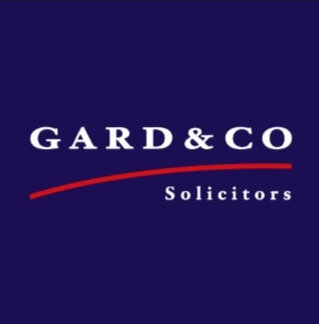Best Defamation Lawyers in Plymouth
Share your needs with us, get contacted by law firms.
Free. Takes 2 min.
List of the best lawyers in Plymouth, United Kingdom
About Defamation Law in Plymouth, United Kingdom
Defamation is a legal term that covers statements that harm the reputation of an individual or business. In Plymouth, United Kingdom, defamation law applies both to spoken words (slander) and written or published words (libel). The aim of these laws is to balance the right to freedom of expression with the right to protect one’s reputation. If a false statement about you or your business causes damage to your reputation and is communicated to others, you may have grounds for a defamation claim under the laws of England and Wales, which cover Plymouth and the surrounding areas.
Why You May Need a Lawyer
There are many situations in Plymouth where you might need legal help with defamation. Some common scenarios include:
- Someone has posted false and damaging statements about you or your business online, such as on social media or review sites.
- You have been accused of defaming someone, and you need legal defence or advice on how to respond.
- A newspaper, magazine, or public broadcast has published false and harmful information about you.
- You want to prevent further spread of a damaging rumour or statement.
- You’re unsure if a statement about you qualifies as defamation under local laws and want to explore your options.
Defamation cases can be complex and are subject to strict legal requirements. A lawyer can advise you on whether you have a strong case, guide you through the process, and help protect your reputation.
Local Laws Overview
Defamation law in Plymouth falls under the Defamation Act 2013, which applies across England and Wales. Key points relevant locally include:
- For a statement to be defamatory, it must cause or be likely to cause serious harm to your reputation. For businesses, it must cause or be likely to cause serious financial loss.
- The law makes it easier for defendants to use several defences, such as showing the statement is true, is an honest opinion, or is a matter of public interest.
- Actions must generally be brought within one year of the defamatory statement being published or communicated.
- Special rules apply for internet publications, including liability for website operators in some situations.
- If you want an online statement removed, you may need to follow certain notice procedures before taking legal action.
Plymouth residents and businesses are protected by these national laws, and local courts can hear defamation cases within their jurisdiction.
Frequently Asked Questions
What qualifies as defamation in Plymouth, United Kingdom?
A statement is defamatory if it causes or is likely to cause serious harm to your reputation and is communicated to a third party. For businesses, it must cause serious financial loss.
Is there a difference between libel and slander?
Yes. Libel refers to written or published defamatory statements, while slander refers to spoken statements. The law covers both forms.
How long do I have to make a defamation claim?
You generally have one year from the date the statement was made or published to begin legal proceedings.
Can I sue someone for something they said on social media?
Yes. Defamatory statements made online, including social media platforms, can lead to legal claims if they meet the criteria for defamation.
What defences are available to someone accused of defamation?
Common defences include proving the statement is true, that it is an honest opinion, or that publishing it was in the public interest.
What can I expect if I win a defamation case?
Potential remedies include damages (compensation), an apology, removal or correction of the statement, and an injunction preventing further publication.
Does defamation law cover organisations and businesses?
Yes. Limited companies and other organisations can bring defamation claims if the statement causes serious financial harm to their business.
Can I stop defamatory material from being published?
You may be able to seek an injunction to prevent the publication or further distribution of defamatory material, especially in urgent situations.
Do I need evidence to support my claim?
Yes. Collect as much evidence as possible, including the defamatory statements, details of where and when they were published, and evidence of harm suffered.
Should I confront the person who made the defamatory statement?
It is usually best to seek legal advice before confronting the person. Sometimes, legal letters (such as a cease and desist) are recommended before taking further action.
Additional Resources
If you require more information or support with defamation issues in Plymouth, consider the following resources:
- Citizens Advice Plymouth offers free, confidential legal advice for individuals facing defamation problems.
- The Law Society provides directories of qualified local solicitors experienced in defamation law.
- The Ministry of Justice has information on making a claim and the legal process in England and Wales.
- Ofcom regulates broadcasting standards and may assist with defamation complaints involving TV or radio.
- The Press Complaints service (now the Independent Press Standards Organisation) addresses complaints about newspapers and magazines.
Next Steps
If you believe you are a victim of defamation or have been accused of defamation in Plymouth, consider the following actions:
- Collect all relevant evidence, such as copies of the defamatory statements and any documentation of harm or loss.
- Do not retaliate or post further comments online about the matter.
- Contact a solicitor experienced in defamation law for an initial consultation and legal assessment of your case.
- If you cannot afford a solicitor, seek help from free legal advice agencies in Plymouth.
- Follow your solicitor's advice on whether to send a legal notice or proceed to court if required.
Remember, swift action is important due to the strict one-year time limit for defamation claims. Taking professional legal advice early can help you understand your options and protect your rights.
Lawzana helps you find the best lawyers and law firms in Plymouth through a curated and pre-screened list of qualified legal professionals. Our platform offers rankings and detailed profiles of attorneys and law firms, allowing you to compare based on practice areas, including Defamation, experience, and client feedback.
Each profile includes a description of the firm's areas of practice, client reviews, team members and partners, year of establishment, spoken languages, office locations, contact information, social media presence, and any published articles or resources. Most firms on our platform speak English and are experienced in both local and international legal matters.
Get a quote from top-rated law firms in Plymouth, United Kingdom — quickly, securely, and without unnecessary hassle.
Disclaimer:
The information provided on this page is for general informational purposes only and does not constitute legal advice. While we strive to ensure the accuracy and relevance of the content, legal information may change over time, and interpretations of the law can vary. You should always consult with a qualified legal professional for advice specific to your situation.
We disclaim all liability for actions taken or not taken based on the content of this page. If you believe any information is incorrect or outdated, please contact us, and we will review and update it where appropriate.











